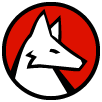Real-World Entities

Notes for Java programmers:
Entities in the Wolfram Language combine natural-language processing, high-level data semantics and knowledgebase access to unify real-world data representation in a unique way that enables new kinds of programming workflows.
Notes for Python programmers:
Entities in the Wolfram Language combine natural language processing, high-level data semantics and knowledgebase access to unify real-world data representation in a unique way. Together with the tightly integrated notebook system, Wolfram Language entities enable new and expressive kinds of programming workflows not readily available in Python. The Wolfram Client Library for Python allows Wolfram Language entities to be evaluated and manipulated directly from Python code.
In the Wolfram Language, real-world entities are just another kind of symbolic expression.
The Wolfram Language knows about thousands of kinds of real-world entities:
It's usually convenient to specify entities using natural language:

Entities have many properties. Here is the value of one:
Use entity["Properties"] to find a list of properties.
When you enter natural language, the ![]() is for disambiguation:
is for disambiguation:

![]() indicates an entity class:
indicates an entity class:
Enter units and measures using ctrl+=:
InputForm shows the structure of the symbolic expression:
GeoPosition represents a geographic position:

DateObject represents a date/time:
Notes for Python programmers:
DateObject is unique to the Wolfram Language and is automatically parsed for importing or exporting into other environments. In Python, there are separate libraries for easier parsing of date strings, but they must be manually split or joined. DateObject can be accessed from Python through the Wolfram Client Library for Python.
